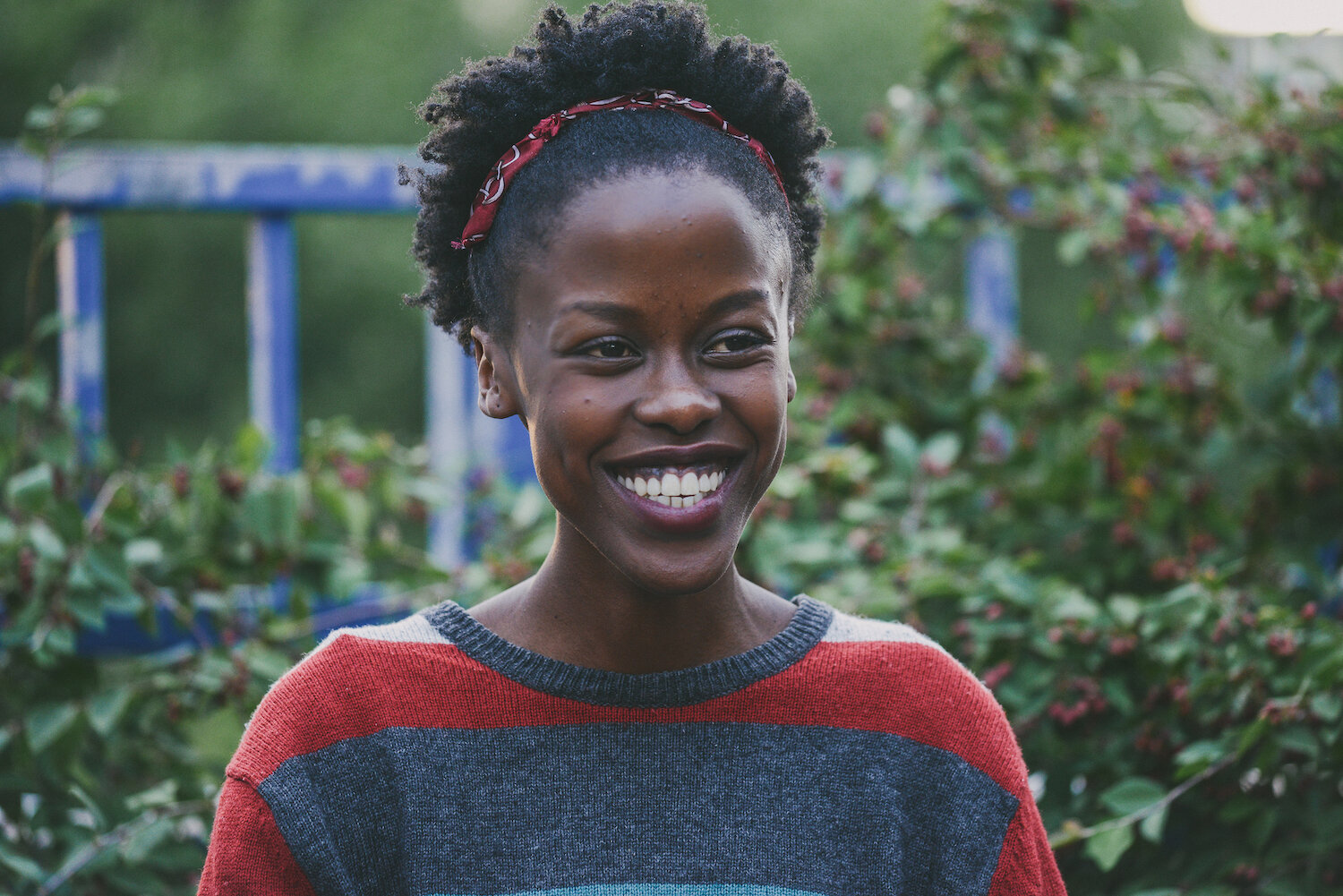Polyglot, a creative way to exist
Polyglot, a creative way to exist
Their bond is striking. They don’t interupt each other. When one speaks, the other one listens carefully. This mutual trust is translated in the first two episodes of Polyglot. Amanda plays Babiche Papaya, a spoken word artist who tries to settle in Berlin. She walks the cold and grey streets of the city. It is with this same instinctive acting that she interacts with the other characters; in english, in the first episode “The Bewerbungsgespräch” (the interview), in french in the second, “ Le mal du pays”.
Their bond is striking. They don’t interupt each other. When one speaks, the other one listens carefully. This mutual trust is translated in the first two episodes of Polyglot. Amanda plays Babiche Papaya, a spoken word artist who tries to settle in Berlin. She walks the cold and grey streets of the city. It is with this same instinctive acting that she interacts with the other characters; in english, in the first episode “The Bewerbungsgespräch” (the interview), in french in the second, “ Le mal du pays”.
Amelia, writes and directs with finesse. She sets a poetic atmosphere and transports the audience to the other Berlin. The non-white one.
They are Africans and Europeans. Amelia and Amanda are part of the young generation of Black Germans ready to question German identity and multiculturalism. One episode at the time.
Polyglot
“We were sitting at the big table with our flat mates and thought about making a series about people just like us! People with multi layered cultural backgrounds. Non-white creative people living in a city like Berlin. I have started writing the script and looked for a director of photography and we started with the first episode. We shot it in our apartment.”
“ I always wanted to do something in film. But I didn’t know what it would be. With Polyglot, I enjoyed writing the script, and to create the look and feel. I thought: this is it! I want to be a director.”
“Money would be nice at some point. It has to stay independent but I’d like to be able to pay everyone who’s involved.”
“So far, we have received very positive feedback. It really inspires us to continue. The next episode will be more musical. Wait. I don’t want to say something and come with a completely different idea in the end!”
“We exchange on so many levels that it is easy for me to understand her directions. If Amelia says: “ red” I know what kind of red she means. For the first episode, she helped us to build our characters. Amelia told us what atmosphere she was looking for. I knew the other actors we are friends. It was quite natural to play together. The second episode was completely scripted. Our older sister played the hairdresser’s role.”
“ Some people tell me, they don’t know how they can relate to this series. I usually tell them: “this is actually not related to you whatsoever”. The people touched by Polyglot understand the message immediately.”
“ I have a problem with what is called mainstream in general and in Berlin in particular. It is actually done by hip white males. Why this is not labeled as such! Why I’m labeled as a minority, African German, woman or else, while they are mainstreaming, nothing else but themselves. Who is represented by mainstream?”
Black and German
“I’m Rwandan. I think this represent the biggest part of my identity. “
"There is this one image of Germany: white people speaking German. Being black and German is a minority in terms of numbers. We are not represented in the media, the film industry, nowhere."
“ We grew up in a small town of West Germany. At school we were the only black kids. We tried hard to fit in. Some friends would tell us “ I’ve never seen you any differently than us” but they don’t know how much we had to change our true self to fit in.”
“ When asked where I’m from, I usually say Rwanda but I grew up in Germany. This “but” should become “and”. I’m from Rwanda and I grew up in Germany. I am in the process of owning this identity.”
“ We are very lucid to the fact that we live a privileged life. We can spend our times watching films for university in a European capital. We have no stress with our documents or residence permits. We know that we have a responsibility bigger than ourselves, because of where we come from. Our parents always told us that we represent our country and our behaviour has to be exemplary in a way. We try to translate this in a creative way not into a social political responsibility.”
“Before moving to Berlin, I lived in Vienna where I studied international development. I wanted to work for an NGO, go back to Rwanda and do something. I am now studying African studies. The cultural part is very important in this field. In those two years, I’ve learned so much about African films. Things I had no clue about a couple of years ago. I knew Nollywood, full stop.”
Art is political
“ I came to berlin to study urban planning and realized this was a training for urban planners only. I wanted to learn something I could apply to my everyday life and decided to explore American studies and African studies as a minor. With this, I learn more about myself and it complements the art I do.”
“I like to rap in the German language I’m more able to bend the words. In English I access different emotions.”
“Using other ways to make our voices heard is important. Youtube allows us to share a vision that would have otherwise not reached so many people. This “If I don’t get the funding, I’d just do it myself” attitude, it’s very political. We are being made invisible by an entire system. We find creative ways to exist anyway. This is very political.”
1.The cinema of Nigeria, often referred to as Nollywood, grew quickly in the 1990s and 2000s and became the second largest film industry in the world in number of annual film productions, placing it ahead of the United States and behind only India.




